Pakistan has gifted the world some of the greatest Sufi singers of the modern era and the Najmuddin/Saifuddin Qawwal group are continuing that long proud tradition.
Perhaps the best-kept secret in the country, the five fabulous brothers are sons of late great music legend Ustad Bahauddin Khan Qawwal and are descendants of musicians who helped found the genre in the 13th century.
Muhammad Najmuddin, Saifuddin Mehmood, Zafeeruddin Ahmeed, Ehtishamuddin Hussain and Mughisuddin are sending audiences around the world into rapture with modern-day performances of songs rooted in ancient tradition.They have also released 11 acclaimed albums and are currently touring the UK as part of the Sama Arts Mystic Voices festival.
Eastern Eye caught up with the singing siblings to talk about their amazing music lineage, Sufi music, inspirations, importance of learning, future of qawwali and more.Tell us about your family’s qawwali lineage?
Our family has been involved with qawwali since (Sufi saint) Amir Khusrau started it in the 13th century in India. He founded the genre with 12 youngsters and personally trained them. He appointed Hazrat Mian Salamat as the leader of the group, who were known as Qawwal bachche (the qawwal children). We are the descendants of Hazrat Mian Salamat, and are now the 26th generation in this tradition of qawwali, which stretches back 750 years.
Your ancestors emphasised the spiritual side of music to each generation and that has kept the tradition strong in your family for more than 700 years. But did you all want to pursue singing as a career?
Our father told us that we could do anything that we wanted, but since qawwali is our tradition and has remained in our family for the last 700 years, he would be very glad if we all would take it forward. So all five of us opted to learn qawwali and started getting training from our father. He not only taught us to sing, but also instilled the principles associated with Sufi music in us.
Your late father Ustad Bahauddin Khan was, of course, a revered music legend. What is the biggest thing that you learned from him?
The biggest thing that he taught us, apart from qawwali and all its musical elements including singing, is to be courteous, be human and be a well wisher to all human beings, not just to Muslims. He taught us to be courteous to all mankind and to all faiths.
Your respective voices are very distinctive. He has also given you all a unique identity?
Our father said, ‘If I want to match your voices with each other, I can synchronise them, but it may spoil your vocal chords, tone and inner strength.’ That’s why he kept our original voices in tune, but then matched our scales. He brought all our scales to one place, but didn’t change the originality of our voices. He said, ‘Don’t copy my voice or your grandfather’s. Don’t copy anyone’s voice and be original.’ He said, ‘you have to become individuals. You have to become Najmuddin, Saifuddin, Zafeeruddin, Ehtishamuddin and Mughisuddin. don’t become me (Bahauddin) and show your individuality.’ So he didn’t amend our voices and just equalised the scales. He said our originality was our power.
Qawwali is, by far, the oldest musical genre, but why do you think that it has survived for such a long time?
It is because qawwali has its roots in the people. It is perhaps the only art form that originates from the feelings and inner soul of a person. Qawwali has resisted all other outside obstacles and remained alive because it comes from within.
The chemistry between you five on stage is incredible. How much do you practice and is there any friendly rivalry?
We normally do three to four hours of daily practice. If we have time in the evening, we will also rehearse for one or two hours. But no, there is not any sort of competition, because our father trained us so delicately and precisely that together we are a group of five persons, who can all lead when it is required. So there is no competition, but a healthy bond and lots of mutual respect.
Your chemistry and ability to bounce off each other on stage is so natural. How much is rehearsed and how much is improvised?
When we rehearse in the morning or evening, we fix the particular parts that have to be done by each of us. On stage in particular, we have room to be flexible in who leads the group in a particular song. That comes from the strong bond of unity instilled in us by our father.
Do you remember the first time you five performed together on stage without your father?
We started performing together in 1991 in Pakistan. The first time we performed together was in front of our father. (All of them laugh) We were very shy and thought, ‘how can we perform in front of our teacher?’ Apart from our father, he was also our teacher and mentor. We were very nervous. We can’t really express how we felt that day, but he was encouraging and thought we were very good. He admired our performance and said, ‘Now, apart from working with me, you can work together as a group too.’
You have delivered concerts all over the world, but which has been the most memorable?
There have been a lot of memorable performances, but one that does stand out was in the US a few years ago.
During that American tour, we did some workshops in schools. We went to one school to perform for children with mental disabilities. Within 10 minutes of us singing, all the kids got up and started dancing. Their teachers were really surprised. They later told us it took them months to reach out to some of the kids, but here they were, not able to understand a word and yet dancing joyously within 15 minutes. Once we had finished the performance, the kids all started to hug us. They gave us so much love and later wrote a card for us, as a thank you. That will stay with us forever and shows the immense power of music.
You must be pleased that so many non-Asians, who don’t understand the lyrics, attend your live performances?
It is quite astonishing for us that kids and adults who can’t understand the music, dance and try singing along with us. Again that shows the immense power of qawwali, which makes an inner connection with audiences.
What is the future of qawwali?
The future of qawwali is very bright. The tradition is rooted in the hearts of people. We are only talking about traditional qawwali and not the fusion type, which people try to earn quick money. Qawwali in its purest form has survived for nearly 800 years and will survive for centuries to come. It will remain because it is connected to the soul. It has an eternal future because it gives you a soul-to-soul connection. That is why its future cannot be dark. The fusion era will only remain for a short while and then it will be finished.
As musical masters, what advice would you give to aspiring musicians and singers?
Always practice well, and open yourself up to everything that music has to offer. Music is limitless and like an endless ocean. No one person can say they have learnt everything there is in music. Learn new dimensions of music and try conceiving new ideas of your own as an artist.
We ourselves have explored different languages with qawwali, including Hindi, Sindhi, Urdu, Persian, Arabic and more. In terms of experimentation, we have even tried to do an English language qawwali. So experiment, but don’t let the soul of your music get lost.
Tell us about your albums?
We have already recorded 11 albums and are currently working on three more. God willing, we will record them when we return to Pakistan. It is our father’s death anniversary in February, and God willing, we will record an album dedicated to him. That means we have to go beyond our own capacity and worker harder than we have ever done. Inshallah, we are making something that hasn’t been done before. That will be something special and dedicated to our late father.
Finally, what inspires you as a group?
We get inspiration from our father because he taught every thing to us. He taught us about qawwali, our religion, our tradition, our ways and everything else. So we get our inspiration from him and our uncles.
Visit www.sama.co.uk for further tour dates.




 Actress Bella Thorne and Charlie Puth attend the Y100's Jingle Ball 2016Getty Images
Actress Bella Thorne and Charlie Puth attend the Y100's Jingle Ball 2016Getty Images 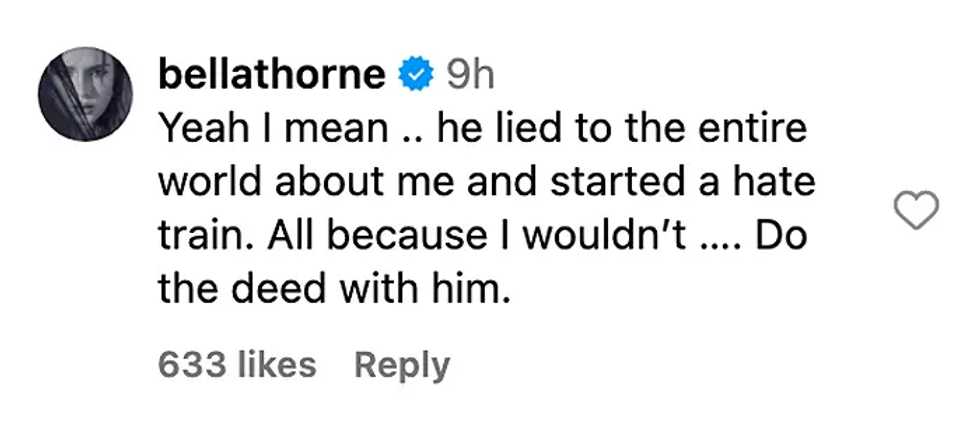 Bella Thorne's commentInstagram Screengrab
Bella Thorne's commentInstagram Screengrab 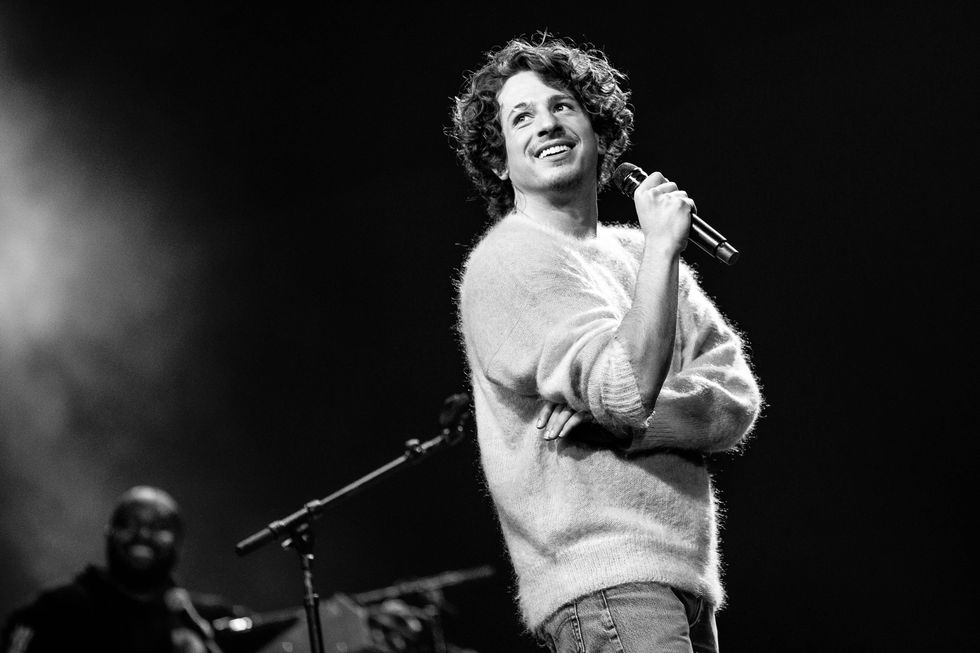 Charlie Puth performs onstage at an interactive global eConcert liveGetty Images
Charlie Puth performs onstage at an interactive global eConcert liveGetty Images  Bella Thorne and Mark Emms attend a red carpet for the movie "Priscilla"Getty Images
Bella Thorne and Mark Emms attend a red carpet for the movie "Priscilla"Getty Images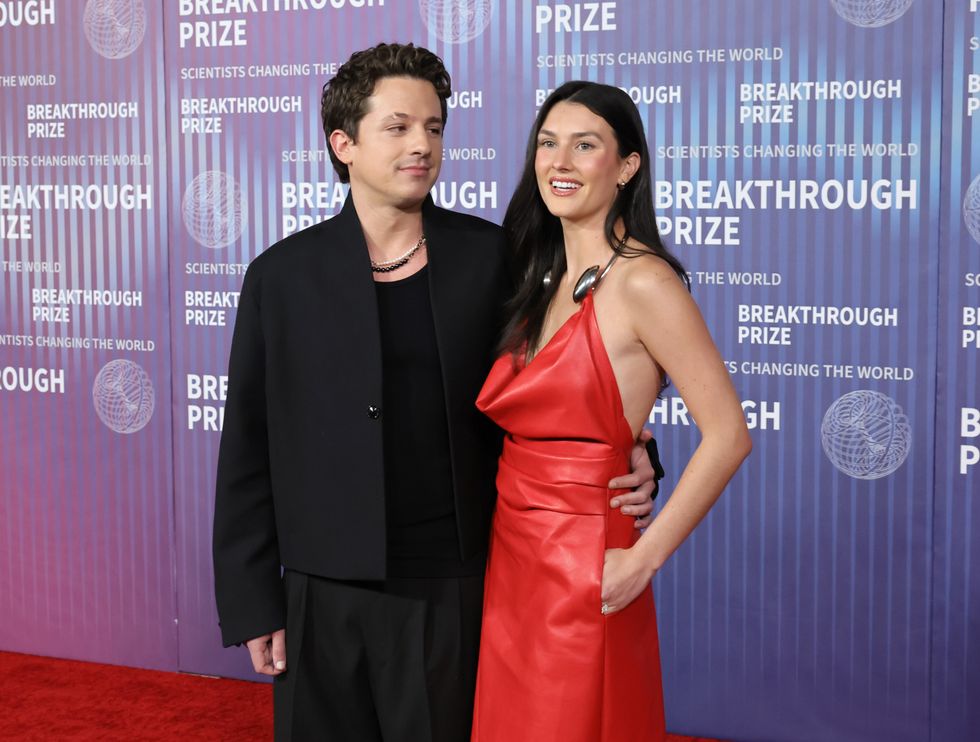 Charlie Puth and Brooke Sansone attend the 10th Breakthrough Prize CeremonyGetty Images
Charlie Puth and Brooke Sansone attend the 10th Breakthrough Prize CeremonyGetty Images









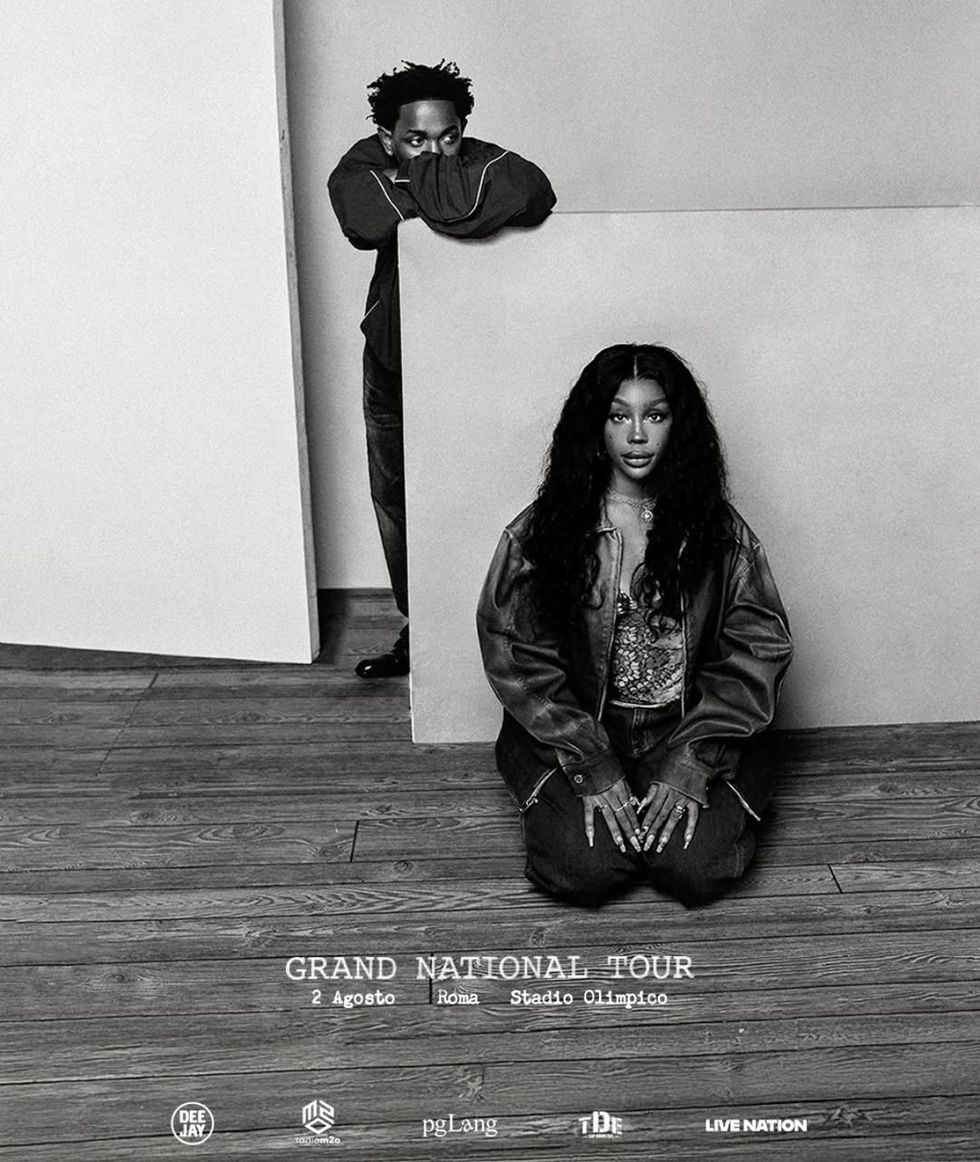 Kendrick Lamar and SZA commands the stage at Villa Park during his explosive opening setInstagram/
Kendrick Lamar and SZA commands the stage at Villa Park during his explosive opening setInstagram/
 Kap’s Cafe in Surrey was struck by gunfire late at night with staff still insideInstagram/
Kap’s Cafe in Surrey was struck by gunfire late at night with staff still insideInstagram/ Kaps Cafe Instagram Story Instagram Screengrab/
Kaps Cafe Instagram Story Instagram Screengrab/ Kaps Cafe Instagram Story Instagram Screengrab/
Kaps Cafe Instagram Story Instagram Screengrab/
 Charithra Chandran styled her hair in soft curls for the Ralph Lauren outfitInstagram/
Charithra Chandran styled her hair in soft curls for the Ralph Lauren outfitInstagram/ Charithra’s look was inspired by her character Edwina Sharma from BridgertonInstagram/
Charithra’s look was inspired by her character Edwina Sharma from BridgertonInstagram/
 New ‘Superman’ movie sparks backlash for portraying hero as immigrant symbol Instagram/
New ‘Superman’ movie sparks backlash for portraying hero as immigrant symbol Instagram/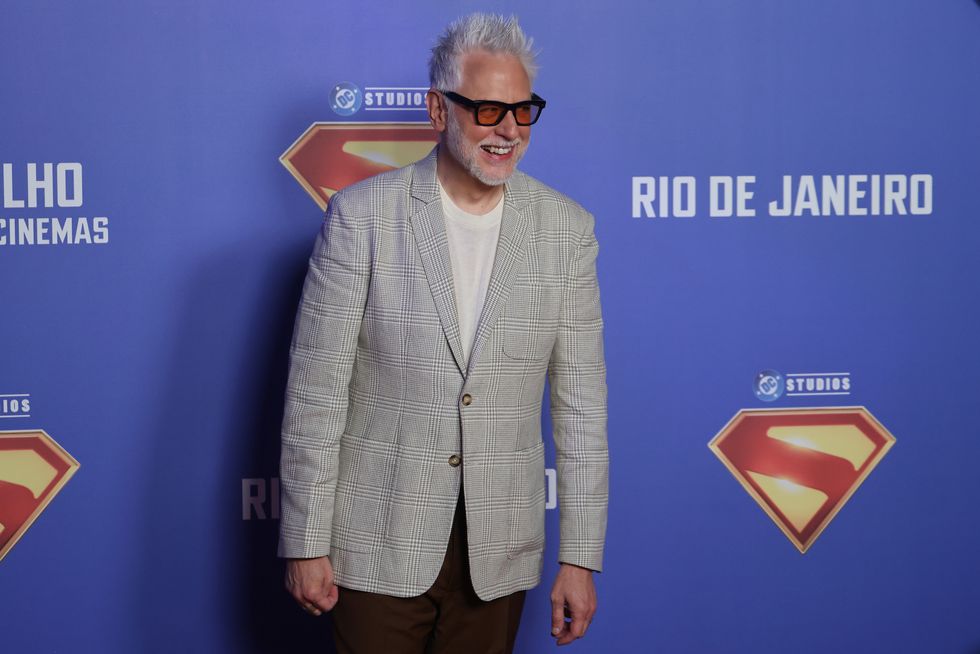 Director James Gunn attends the red carpet for the Superman movie premiereGetty Images
Director James Gunn attends the red carpet for the Superman movie premiereGetty Images 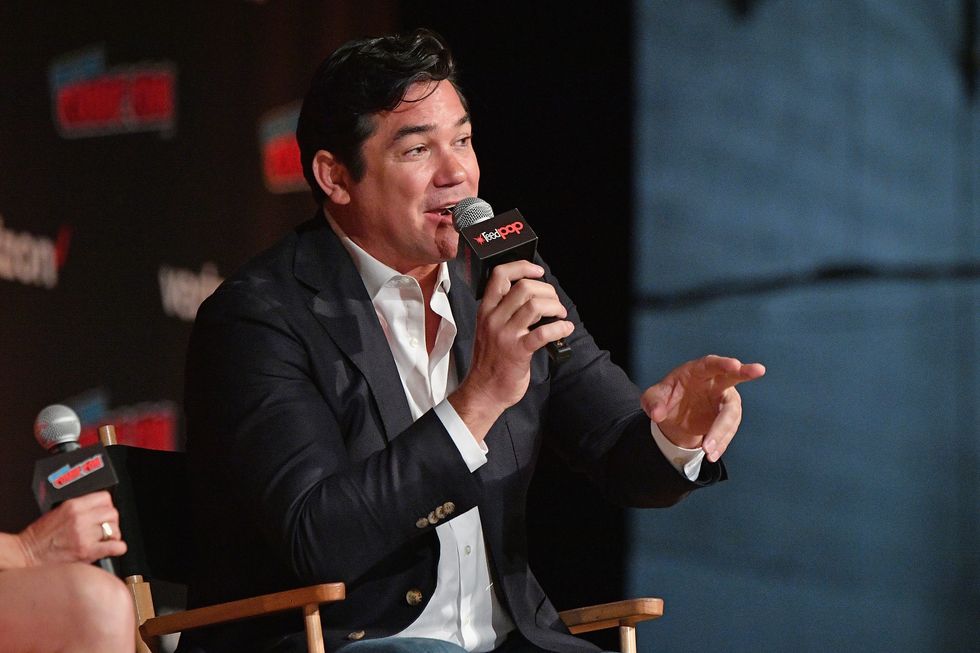 Dean Cain accused Hollywood of going too far with “woke” reinterpretationsGetty Images
Dean Cain accused Hollywood of going too far with “woke” reinterpretationsGetty Images